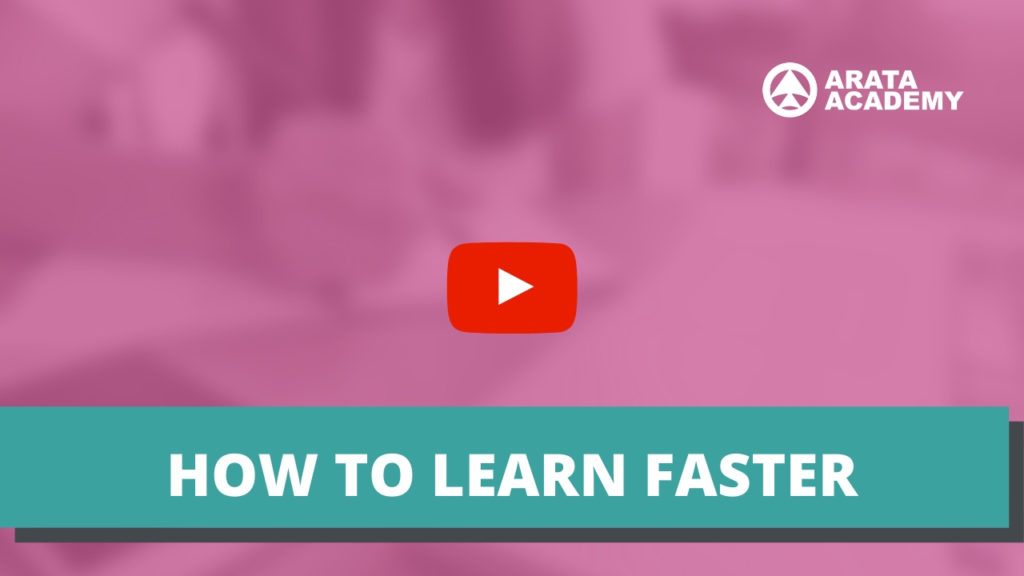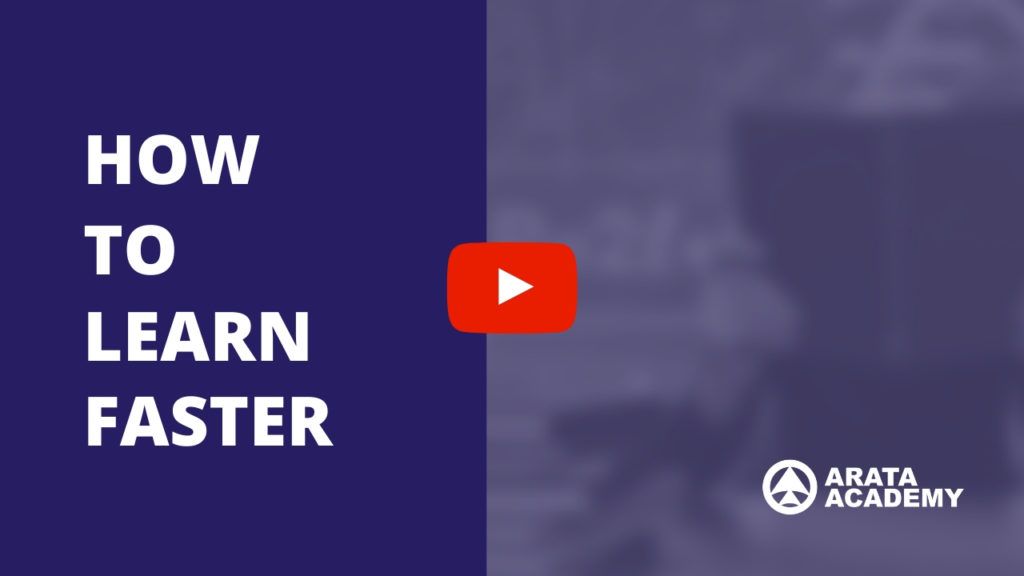Study Arata! Here at Arata Academy, we strive to produce content that helps you improve constantly. And thinking about your continued improvement, let’s start a new series of videos about learning. In this series, we’ll give you practical tips to improve the quality of your learning.
Today, in this first video, I’m going to start by suggesting a simple change that every student should make at study time. Please take your notebook and a pen.
Increase the quality of your questions.
A common mistake as we are learning is to have a question and simply raise our hand to ask the teacher or a fellow student to solve the problem for us.
If you are looking at an exercise or question, and you don’t understand the statement or have no idea how to find the answer, enjoy it, because you are facing an opportunity. This is a real learning opportunity that some people end up wasting.
In order to enjoy these learning opportunities created by your questions, hold off asking someone for help. Look again at the question and ask yourself a few more questions: What do I not understand? What part of the knowledge is missing? What parts of the content do I already understand, have I already mastered? And what information have I seen but forgotten, or perhaps isn’t clear enough?
These questions will raise your level of awareness about your situation.
Remember this: every time you feel confusion, it represents an opportunity for you to consolidate and strengthen your learning. When you don’t know the right answer to a question, this is the special moment when you need to stop. Find out exactly where the confusion is. Identify the essential block of knowledge that you’re missing and need to master.
The situation you need to avoid is asking someone else to overcome every stumbling block for you without you having to strain yourself. The moment you ask for help, whether from a teacher or a friend, the answer will come too easily. You won’t use your brain’s full potential to create the neural connections and the associations of ideas that are necessary for real learning.
Uncertainty is a natural part of learning. When you realize that something is missing, it means you are putting the blocks of knowledge in their proper places, and you have identified the missing parts. Don’t despair, this is absolutely normal—and now you know it’s even expected.
Don’t let pride disturb you
There are some people who have questions, but because of pride, they won’t admit that they don’t know the answer. They pretend they know. This is a trap that greatly undermines the quality of learning.
Ultimately, this path is inefficient. You may not want to publicly admit that you don’t know the answer, or you convince yourself that you will look up the answer in the books later. Either way, understand that you are slowing down your learning.
If you are in a learning environment with well-trained teachers who have more advanced knowledge than yours, accelerate your learning by making the most of these people and resources. The key point is not to ask for the answers so you don’t have to think. On the contrary, you will think even more: examine what you didn’t understand as I taught you just now. This will help your learning.
This could even be a good time to realize that some parts of your knowledge may be wrong. Let me give you a slightly more practical example: imagine that you are facing a problem. You stop, you think, and you can’t answer.
Before you ask for help, talk to yourself: Well, I understand that first I have this theory that should be used in this way, and I also understand that I have this second theory that must be used in that other way. But it seems to me that there is a third theory that I don’t remember well and that I don’t know how to apply.
This is probably when you will discover the missing piece to solve the problem. You may still need to ask your teacher for help, but you will have a much higher level of awareness.
It may also happen that the teacher explains the first or second theory in a way you’d not understood them before. And then you say “aha!” and manage to raise the quality of your knowledge.
Studying in pairs or groups.
A lot of people write to me and say that they like to study with one or more people around to boost their commitment or motivation. On the one hand, this can be very good—after all, you are all working together for the same purpose.
But this method presents a potential problem that I mentioned at the beginning of the video. When you’re studying with others, you may miss the opportunity to question and understand which of your blocks of knowledge are in trouble.
My suggestion to you, in this case, is this: first, try to solve all the problems yourself, without others around. After you work hard on your own, then seek interaction and shared study.
With this simple tip today, you will improve the quality of your learning. Always practice this self-questioning. That way you will be able to understand many things that you failed to understand before.
Well, I hope you enjoyed this initial video. Please feel free to tell me what you think. And if you feel like going deeper into rapid learning techniques, I invite you to take a look at our How to Learn Faster course. Just visit this link.

